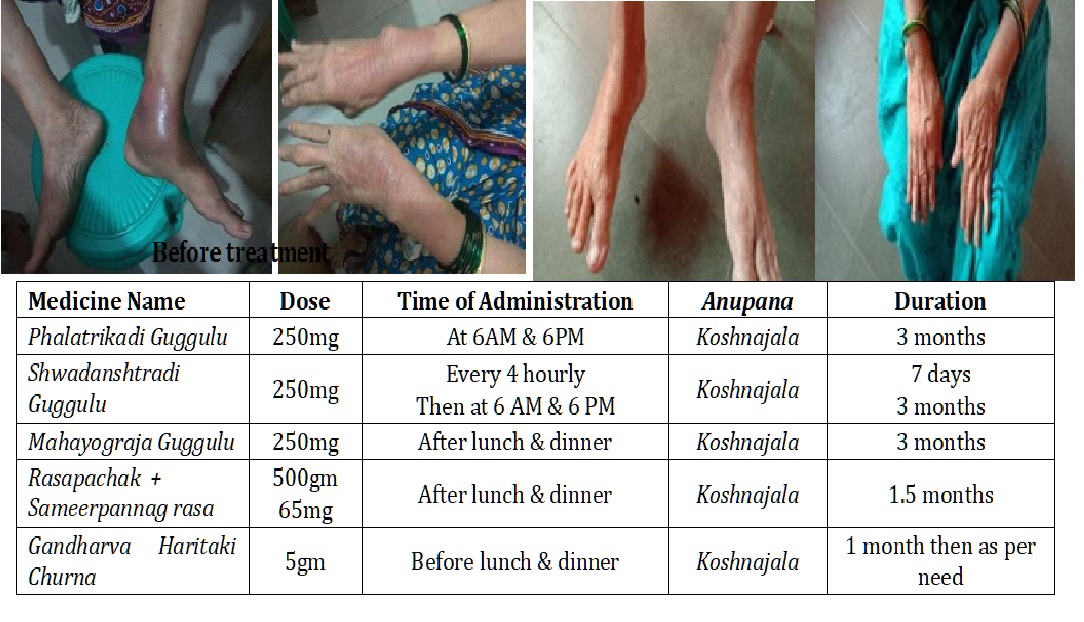Management of Amavata w.s.r. to Rheumatoid Arthritis
DOI:
https://doi.org/10.47070/ayushdhara.v11i3.1566Keywords:
Amavata, Rheumatoid Arthritis, Agni, AmaAbstract
Vitiated Vata Dosha, weakened Agni, and accumulation of Ama at Shleshmic Sthana mainly at Sandhi (joints) are responsible for the development of Aamvata. Amavata can be correlated with Rheumatoid Arthritis due to similarities in clinical symtoms. Rheumatoid arthritis is one among the autoimmune diseases causing chronic symmetrical polyarthritis. The treatment in Modern science includes the use of NSAID’s (Non steroidal anti-inflammatory drugs), DMARD’s (Disease-Modifying Antirheumatic Drugs), glucocorticoids, and immune-suppressants, long-term use of which causes several side effects. Ayurveda treatment procedures and medication used for the treatment of Amavata have Agni Deepana, Ama Pachana, Vata Shamaka, Sroto shodhana actions which are helpful to retard disease process and reduce signs and symptoms of the disease. In the present case, 65-year female patient presented with, complaints of multiple joint pain with swelling and morning stiffness, restricted joint movements, loss of appetite, fatigue, weakness, fever (on and off), migratory pain, and symmetrical joint involvement. Patient was administered with Phalatrikadiguggulu, Shwadanshtradi guggulu. Mahayograjguggulu, Rasapachak vati, Sameerpannag rasa and Gandharvaharitaki churna added as Nitya Virechana. Ruksha Swedan with Valukapottali had also been given. The therapeutic interventions adopted in the study have shown beneficial effects in the patients of Aamvata.
Downloads

Downloads
Published
Issue
Section
License
Copyright (c) 2024 AYUSHDHARA

This work is licensed under a Creative Commons Attribution-NonCommercial-ShareAlike 4.0 International License.


